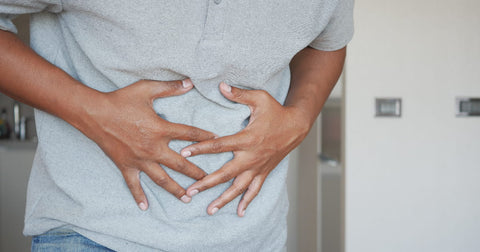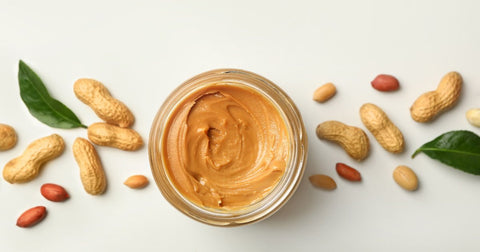Ever feel like your gut is waging war against you? Bloating, gas, fatigue, and even skin problems can all be signs of an imbalanced gut. If you're wondering if dysbiosis is to blame, this guide is for you. Let's explore what gut dysbiosis is, its telltale symptoms, and how to restore harmony to your digestive system.

What is Dysbiosis and Its Signs and Symptoms?
- Your Gut's Microbial Community: Your gut is home to trillions of microorganisms, collectively known as the gut microbiome. This diverse community plays a crucial role in digestion, immune function, and overall well-being.
- The Delicate Balance: A healthy gut has a diverse array of bacteria, with beneficial strains outnumbering harmful ones.
- Dysbiosis: When this balance is disrupted, it's called dysbiosis. This imbalance can be caused by a variety of factors, including diet, medications, stress, and infections.
Dysbiosis Symptoms in Females: More Than Just Tummy Troubles

While gut dysbiosis affects both men and women, some symptoms are more common in women:
- Digestive Distress: Gas, bloating, constipation, diarrhea, abdominal pain, and cramps are all frequent complaints.
- Skin Problems: Acne, eczema, rosacea, and other skin conditions may worsen or flare up due to gut dysbiosis.
- Fatigue & Brain Fog: The gut-brain axis is a powerful connection. An imbalanced gut can contribute to fatigue, difficulty concentrating, and even mood swings.
- Yeast Infections: Dysbiosis can disrupt the delicate balance of bacteria and yeast in the body, leading to recurrent vaginal yeast infections.
- Autoimmune Conditions: Emerging research suggests a link between gut dysbiosis and an increased risk of autoimmune disorders.
How to Identify Dysbiosis: Beyond the Obvious Signs
While the symptoms above are common, dysbiosis can also manifest in less obvious ways:
- Nutrient Deficiencies: Poor gut health can hinder the absorption of essential vitamins and minerals.
- Hormonal Imbalances: Gut bacteria play a role in hormone production and regulation.
- Mood Disorders: Research suggests a link between gut dysbiosis and conditions like anxiety and depression.
Dysbiosis Diet: Nourishing Your Gut Back to Health

A key component of managing dysbiosis involves dietary changes:
- Eliminate Trigger Foods: Identify and avoid foods that worsen your symptoms. This might involve a low FODMAP diet, gluten-free diet, or eliminating other potential triggers. A food intolerance test can be helpful in pinpointing specific sensitivities.
- Focus on Whole Foods: Prioritize fruits, vegetables, whole grains, lean protein, and healthy fats.
- Fermented Foods: Yogurt, sauerkraut, kimchi, and kombucha are rich in probiotics, which help replenish beneficial bacteria.
- Limit Processed Foods, Sugar, and Alcohol: These can disrupt your gut microbiome and worsen inflammation.
Gut Dysbiosis Treatment: More Than Just Diet
While diet is essential, other treatments might be necessary:
- Probiotic Supplements: These can help restore balance to your gut microbiome.
- Antibiotics or Antifungals: Depending on the cause of the dysbiosis, your doctor might prescribe medication to target specific overgrowths.
- Digestive Enzymes: These can aid in breaking down food and reduce digestive discomfort.
- Stress Management: Techniques like yoga, meditation, or therapy can help reduce stress and its negative impact on your gut.

Empower Your Gut Health: Take the First Step
If you suspect you might have dysbiosis, don't ignore your body's signals. Our food intolerance test kit can help identify triggers, empowering you to make informed dietary choices and support your gut health.
Disclaimer: This information is for educational purposes only and does not replace professional medical advice. Always consult your doctor for accurate diagnosis and treatment.
Frequently Asked Questions:
1. I've been feeling bloated and tired lately. Could it be dysbiosis?
Bloating and fatigue are common symptoms of dysbiosis, but they can also be caused by other factors. It's important to look for additional signs like changes in bowel movements, skin problems, or mood swings. If you suspect dysbiosis, talk to your doctor or consider a food intolerance test to identify potential triggers.
2. How can I tell if my gut microbiome is imbalanced?
Look for patterns in your digestion. Do you experience gas, bloating, constipation, or diarrhea regularly? Have you recently taken antibiotics or experienced significant stress? These could all be clues to gut dysbiosis.
3. What kind of diet is best for managing dysbiosis?
A healthy, balanced diet rich in fiber from fruits, vegetables, and whole grains is crucial for gut health. Avoiding processed foods, sugar, and alcohol can also help. Depending on your specific sensitivities, a low FODMAP or elimination diet might be recommended.
4. I've heard about probiotics. Can they help with dysbiosis?
Yes, probiotics can be very beneficial in restoring balance to your gut microbiome. Look for high-quality probiotic supplements with diverse strains and consult your doctor or a registered dietitian for guidance.
5. Can dysbiosis lead to more serious health problems?
While dysbiosis itself is not life-threatening, chronic imbalances in gut bacteria can increase the risk of various health issues like inflammatory bowel disease, autoimmune disorders, and even mental health conditions.


.png?v=1737390083)
.png?v=1737187409)


